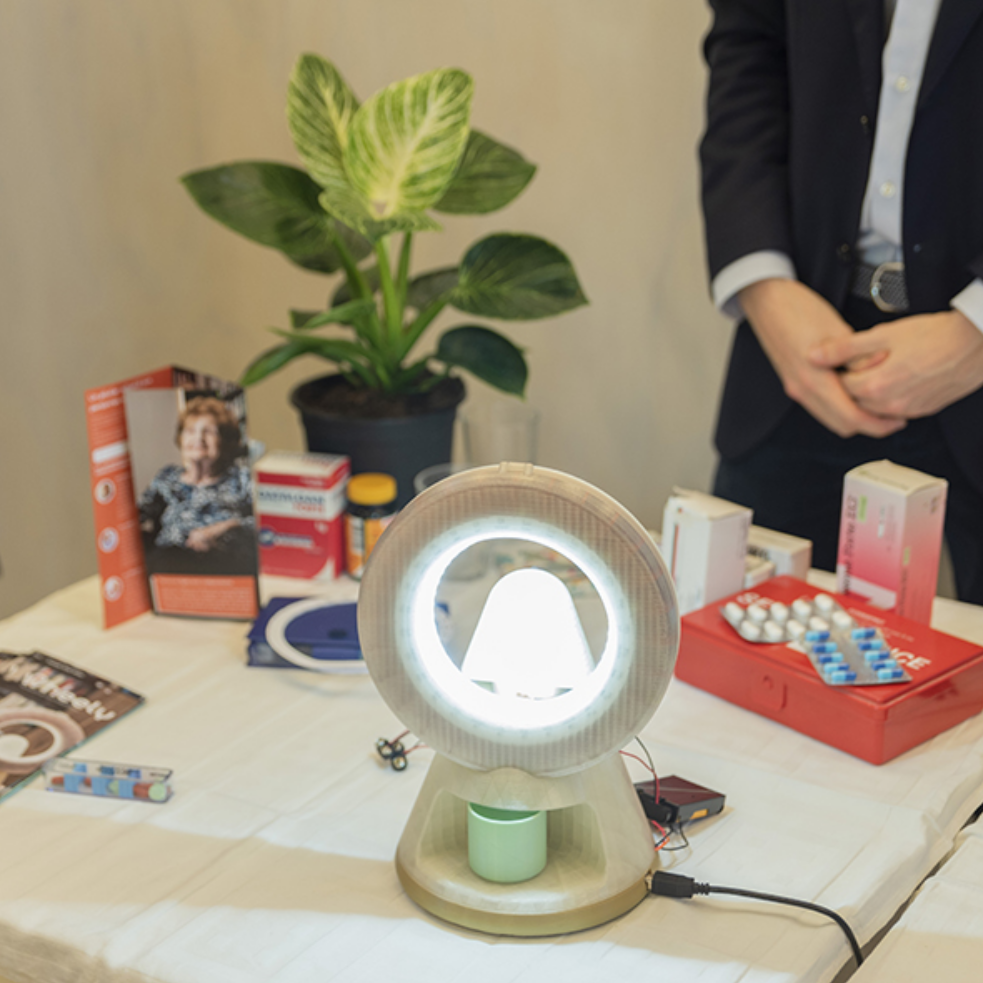
Triaxes+
As a Brussels-based actor around the topics of interdisciplinarity, innovation and collaboration, taking part to the coordination of TRIAXES Ens from 2019 was an opportunity Ohme couldn’t miss !
TRIAXES Ens is an intensive and exciting collaborative project developed jointly with the design, business, engineering and law schools. It brings together students from four faculties to collaborate and integrate design thinking models for both the product prototyping and business model envisaged. This interfaculty master module for MA2 students combines the following features : creativity, multidisciplinarity, entrepreneurship, product development, teamwork and project-based learning. The uniqueness of the program comes from this innovative combination, from how it is integrated in a continuously improving pedagogical ecosystem and from the strong and rare learning outcomes offered by this experience.
Any curriculum at university-level in a specific faculty and scientific field offers few opportunities to exchange, share and collaborate with people having other backgrounds. The TRIAXES methodology offers this opportunity to step outside the specific educational monoculture students faced during higher education. TRIAXES ENS is a practical allegory of what one would call “transdisciplinary synergy”. The collective intelligence of students with different backgrounds, united behind a common goal, leads to creative solutions to complex challenges and tangible results which go beyond what would be possible by simply setting out disciplines side-by- side.
In terms of learning outcomes, this collaborative experience helps to overcome individualism and silo thinking and to acquire new sustainable (meta-)skills and mindsets which are key success factors in the (post-graduated) real-life world of work: open-mindedness, critical thinking, perspective shifting, knowledge transfer, teamwork mentality, task breakdown, introspection, etc. Moreover, the project-based learning approach motivates the students by actively engaging them in a real-world
and personally meaningful project.
From 2013 to present, 89 students have taken part to TRIAXES Ens projects. The 2019-20 edition signalled the end of the first chapter. Indeed, we have new perspectives and ambitions for TRIAXES Ens programmes. We’re currently working with the supervisory team on two new formats: TRIAXES Ens Master Theses and TRIAXES Ens Advanced Master.
Our highest desire and ambition is to go even further in interdisciplinarity by involving people with broader backgrounds: artists, biologist, architects, musicians, philosophers, etc. More info soon!